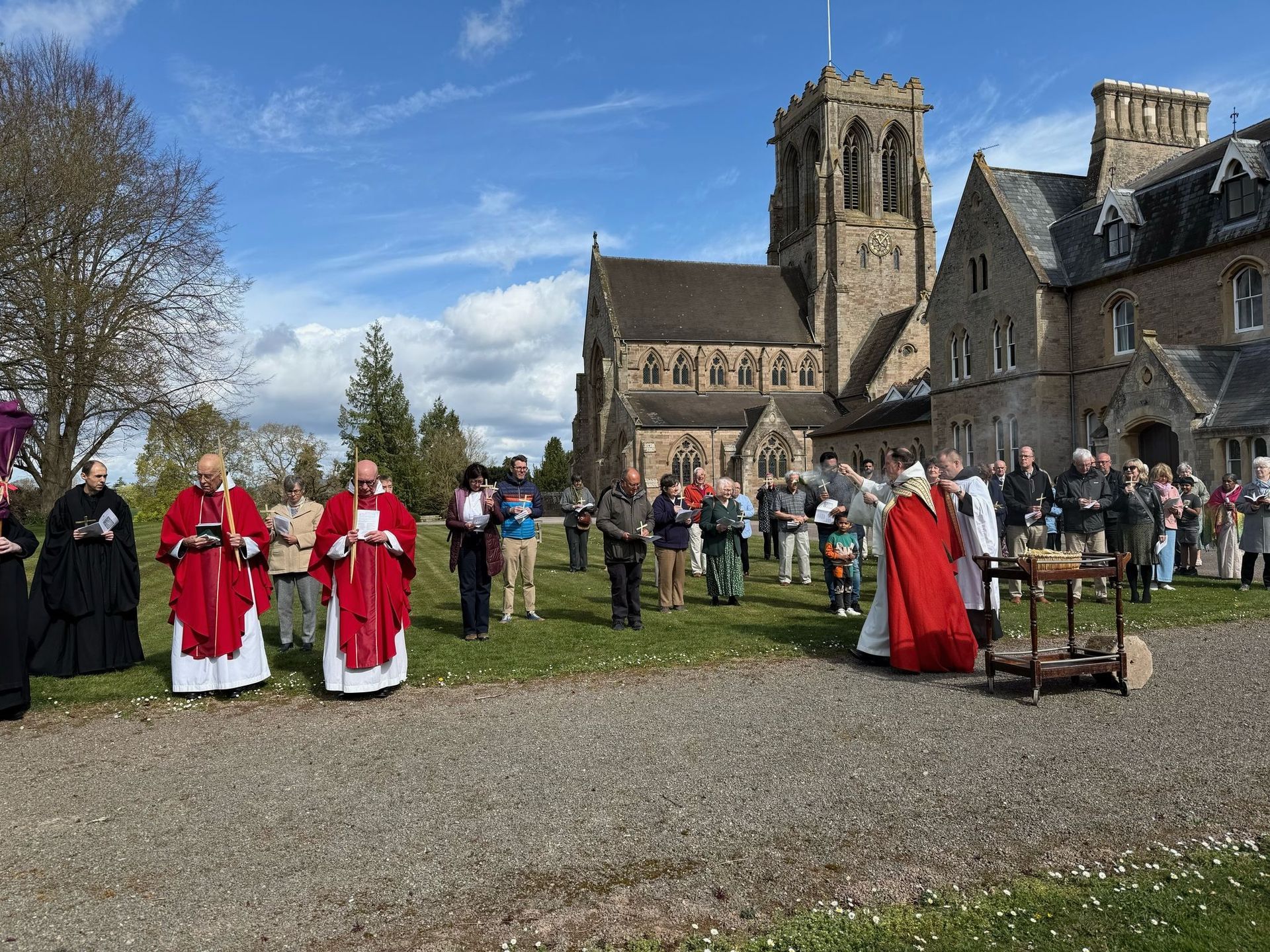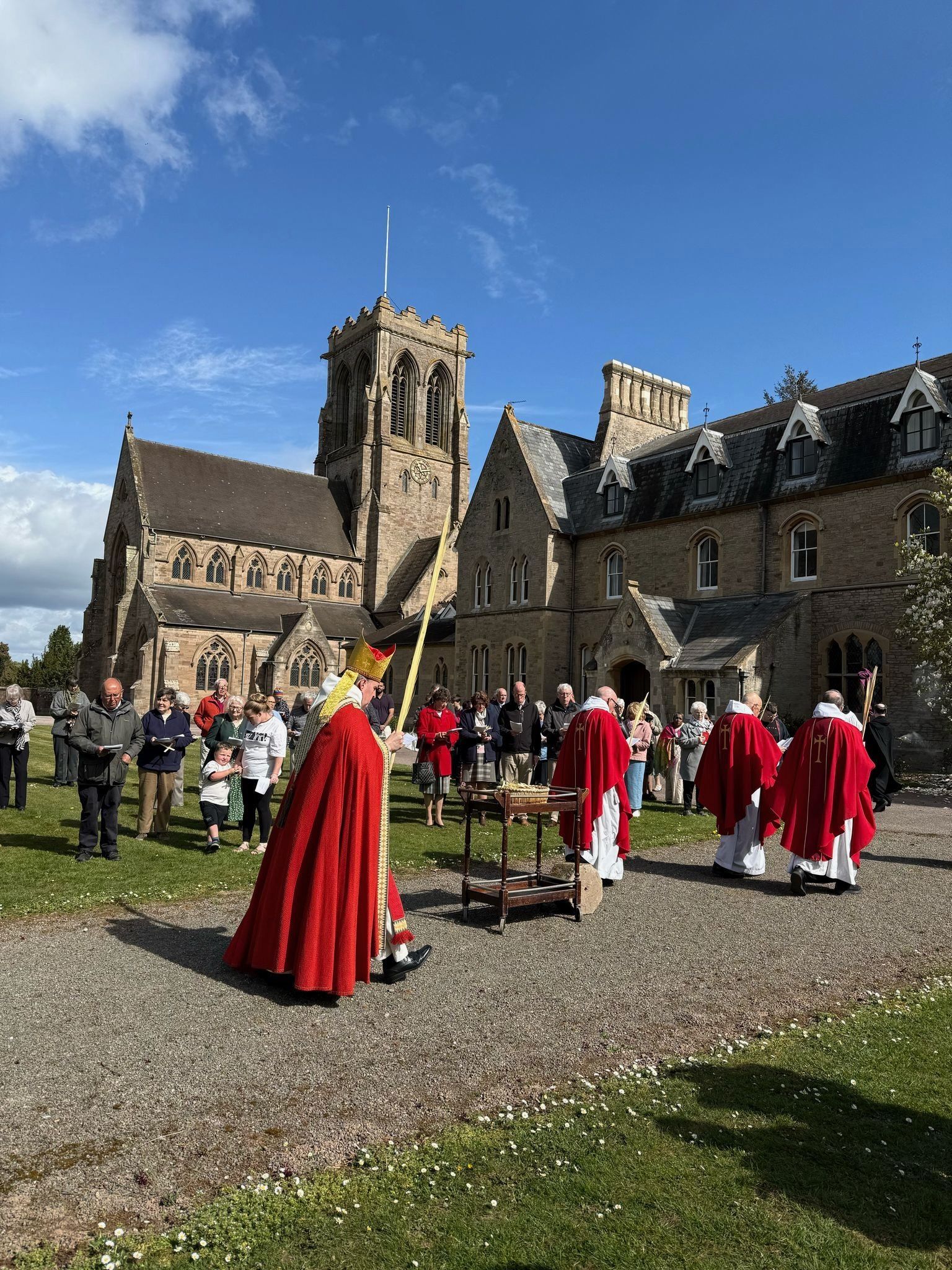Palm Sunday
The Passion According to St Luke: Homily by Abbot Brendan

Today, we enter Holy Week by stepping into the first act of a great and sacred drama. St Luke, writing for a world shaped by Greek thought and sensibility, consciously presents the Passion of Jesus as a drama—something seen, heard, experienced. At the end of his account, he tells us: “All the crowds who had gathered for this spectacle (drama) saw what had happened and went home beating their breasts” (Luke 23:48).
The Greeks loved drama, not as passive entertainment, but as something that demanded participation. Luke invites us not to watch the Passion from a distance but to be drawn into it, to allow it to change us. Like the crowd, we too are meant to walk away from this story not the same—moved, broken open, converted.
Luke also draws on another Greek idea—the death of a just man. He doesn’t emphasize sacrifice or atonement in the way some other biblical writers do. Those concepts might have been unfamiliar or confusing to his Gentile readers—and perhaps even to us. Instead, Luke gives us a person to imitate. Jesus becomes an icon of divine compassion and human courage.
Like Socrates at his death, Jesus leaves his disciples a final gift—his words and his actions. At the Last Supper, he offers his testament in the form of a gesture: he takes bread and wine, blesses them, breaks the bread, and shares it. And then he speaks not about dominance or honour, but about service. “Who is the greatest?” he asks. “The one who serves.”
In Luke’s Passion, the Cross does not achieve forgiveness so much as it reveals it. Jesus doesn’t die to change God’s mind about us, but to show the unchanging mercy of God. The Cross is not a transaction; it is a revelation—the self-emptying love of God poured out for the world.
Luke’s telling is marked by great tenderness and restraint. He cannot bring himself to describe the scourging, it is too distressing. Judas, we are told, does not kiss Jesus—he only “draws near.” The Roman soldiers’ mockery is left unspoken. Luke shields us from the brutality, not to avoid the truth, but to focus our gaze on the one who suffers with such grace.
And unlike the other Gospels, Jesus is not the solitary, isolated figure going to his death. Luke surrounds him with companions—an angel strengthens him in the garden, as he sweats blood in his agony. Along the way, women weep for him, and Simon of Cyrene takes up his cross. Even in death, Jesus draws people to himself, welcoming the Good Thief into paradise. It is almost as if he forgets his own suffering to as to be entirely at the service of others: healing the servant’s ear, comforting the women, forgiving his executioners, encouraging the penitent thief.
This is the drama of the Just One. Throughout the Passion, Luke has others pronounce Jesus innocent: Pilate, three times; the thief on the cross; the Roman centurion; the crowds. He dies not in isolation but surrounded by human recognition and divine love.
And we are drawn in. Luke calls us to take our place in the story:
- – With Peter, to feel the gaze of Christ as we acknowledge our weakness
- – With Simon of Cyrene, to shoulder the cross alongside him.
- – With the women of Jerusalem, to weep over a suffering world.
- – With the centurion, to recognize the truth of who Jesus is.
- – And with Jesus himself, to commend our lives into the hands of a loving Father.
One detail unique to Luke speaks volumes. When a disciple lashes out with a sword, Jesus heals the high priest’s servant. Even at the moment of his arrest, Jesus is the divine physician, bringing healing to those who come to harm him. The Gospel begins with healing—and ends with it. That is what redemption looks like.
The crowds had arrived for a spectacle, but somewhere between leaving Jerusalem and Jesus breathing his last the crowd’s attitude reverses – they went away beating their breasts. As we enter this Great Week of our salvation, let us be awakened to the cost of love, the mystery of mercy, and the healing power of a just man’s death, so that our hearts may be changed too.










